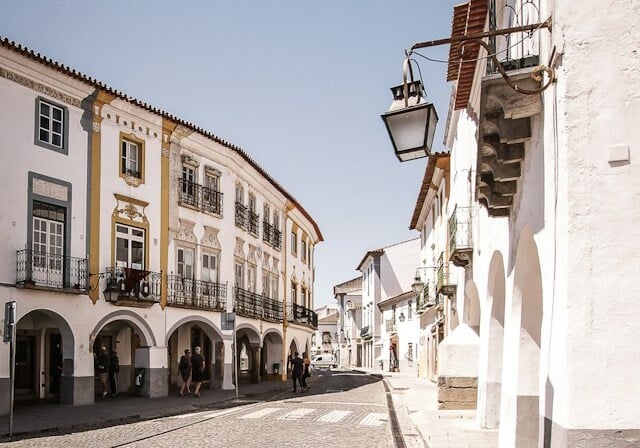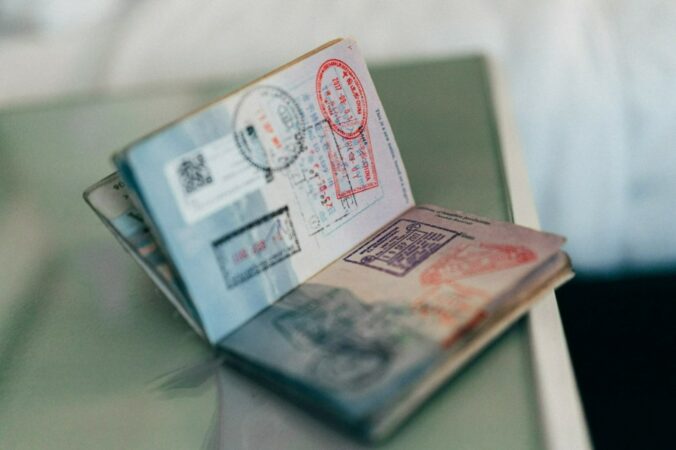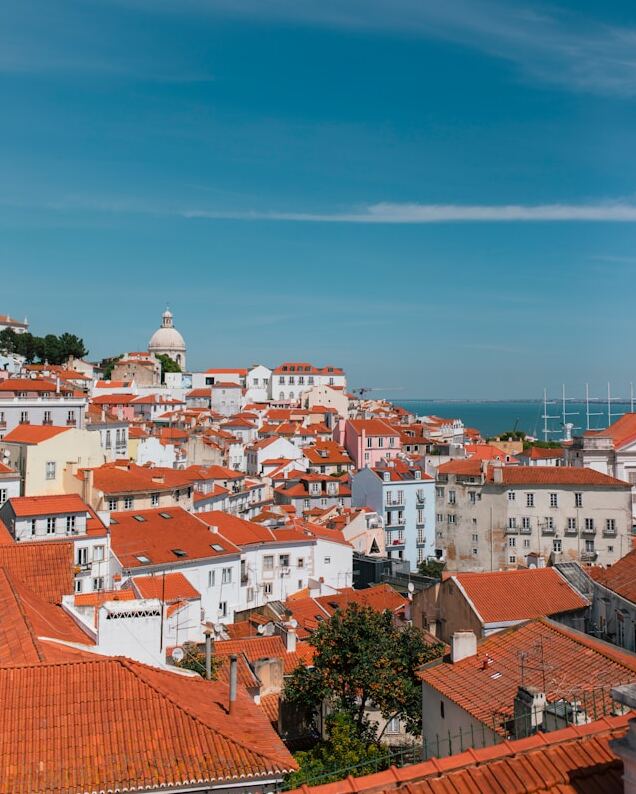Updated: April 12, 2024
Portugal immigration has been a hot topic in recent years, particularly with the growing popularity of the Portuguese Golden Visa program. So, what does it take to move to the country and become a Portuguese resident? Keep reading, and we’ll tell you everything you need to know about entering Portugal and immigrating to the country – Portuguese visa options, timelines, and requirements.
March 2024 Update: New Changes in Portugal's Nationality Law

Previously, individuals seeking Portuguese nationality through naturalization were required to reside in Portugal for a minimum of five years, starting from the issuance of their initial residency permit. However, under the newly amended law, the time between the submission of the temporary residency permit application and its final approval will now be taken into account when calculating the required residency period for nationality, provided the permit is eventually granted.
This amendment garnered broad support during the parliamentary voting process, suggesting little opposition from both political and civil society sectors. The legislation is now pending final drafting before being presented to the president for ratification.
 A welcome change for Golden Visa and D7 Visa applicants
A welcome change for Golden Visa and D7 Visa applicants
This development is particularly beneficial for Golden Visa and D7 Visa applicants who previously faced challenges due to the five-year residency requirement starting from the issuance of their initial residency permit. With these changes, individuals experiencing delays in residency approvals will have their waiting period considered, allowing them to apply for Portuguese nationality sooner. For instance, those intending to apply for Portuguese residency in 2024 would meet the five-year residency requirement for citizenship by 2029, regardless of potential processing delays.
These amendments represent a significant step towards simplifying processes for individuals relocating to Portugal and those seeking Portuguese citizenship through naturalization.
Portugal Immigration – Your Portuguese Visa Options

Nationals from European countries that are part of the EU, European Economic Area (EEA), and Swiss citizens can enter Portugal without a visa and stay for up to 90 days. All you need to do is show a valid identity card or passport. If you intend to stay longer than these three months, you must request a registration certificate. After five years of living in Portugal, European citizens can apply for permanent residency in Portugal.
Non-EU citizens (anyone not from the EU, EEA, or Switzerland) who want to enter Portugal or live in Portugal will require a valid visa. This may vary depending on whether or not your country has an international agreement with Portugal. Your visa application will be processed by the Portuguese Consulate or Portuguese Embassy in your country of residence, and your residence permit will be issued by the Portuguese Immigration Office (SEF, the Portuguese border service).
Non-European citizens

For example, an American citizen will need to get a Portuguese residence permit to stay in Portugal for longer than three months. If you reside in Portugal with a proper residence permit for a period of five years, you become eligible to apply for Portuguese permanent residence and Portuguese citizenship.
Non-EU/EEA/Swiss nationals who want to stay in Portugal for more than three months must apply for a long-term or Portuguese residency visa. You must make this application before arriving in Portugal, while a Portuguese residence permit can be applied for after arriving in the country. Self-employed individuals, workers, students, passive income earners, retirees, and family members are included in the category of people who will need to apply for this visa.
Portugal Immigration – Visa Types
The type of Portuguese visa you can apply for will depend on your unique situation. Fortunately, Portugal offers a few visa options to choose from:
- Schengen short stay visa
- Temporary stay visa
- Portuguese residency visa
- Portugal online worker visa
- Portugal Tech Visa
Let’s take a more detailed look at each of these Portuguese visas.
Schengen short-stay visa
The Schengen visa is for you if you want to visit Portugal and travel freely within the 26 Schengen countries that make up the Schengen Area. The Schengen visa is valid for 90 days during a six-month period; you can choose between the following types of Schengen visa:
- Airport transit visa (Visa A): This Schengen country airport visa allows travel from one flight to another within the international area of an airport. Required for all passengers changing flights in the airport of a Schengen country, unless exempted.
- Transit and short-term stay visa (Visa C): Issued for transit and short-term stays in the Schengen Area and valid for 90 days within a six-month period. The most common short-term stay visas are the Portuguese tourist visa and business visa.
- Limited Territorial Validity (LTV): A special short-stay visa allowing travel to one Schengen state or certain multiple Schengen states if specified beforehand.
Temporary stay visa

- Medical treatment or accompanying a family member undergoing medical treatment
- Transfer of workers providing services or training between countries within the World Trade Organisation (WTO)
- Temporary employment or self-employment
- Conducting scientific research or teaching in a higher education institution
- Pursuing sports activity
The following documentation is required for all temporary stay visas in Portugal, in addition to the completed application form:
- Passport or other valid ID
- Two passport photos
- Proof of return ticket
- Proof of valid health insurance
- Access to criminal records by the Portugal immigration authorities
- Proof of accommodation in Portugal
- Proof of sufficient funds to support yourself financially during your stay in Portugal
Portuguese residency visa

- Employed work
- Self-employment or entrepreneurial activities
- Higher education programs for students who want to further their studies and already reside in Portugal
- Study, student exchange, internship, or voluntary services
- Scientific research or teaching
- Family reunion
- Pensioners and people with an income to support them during their stay in Portugal
The Portuguese residency visa can be issued as a multiple-entry visa that allows travel within the Schengen Area. No matter your residency visa, you will need to apply for a residence permit once you have entered Portugal. After five years with this temporary residence visa, you can then apply for permanent residency and Portuguese citizenship, provided you meet all the requirements under immigration law and Portuguese nationality law.
For more information, take a look at our article on How to Get Portuguese Residency.
Portugal online worker visa
Your nationality and the period you will be employed will determine whether you require this visa. There are a few national visa options for non-EU nationals:
- Short-term work visa: This applies to work contracts lasting six months or less and is available to employees and self-employed workers. You can extend this visa for a year.
- Long-term Portugal online worker visa: Required for non-EU nationals looking to work long-term in Portugal. Classified as a type D Schengen Visa, it allows visa-free travel across the Schengen Area.
Portugal Tech Visa

- The applicant must be a third-country national that resides in a territory that is not part of the EU
- All tax obligations must be fulfilled
- The applicant must have a clean criminal record and be at least 18 years of age when applying for the visa.
- The applicant must have completed a Bachelor’s degree or an equivalent level – level six, according to ISCED 2011, or level five, tertiary level education, with five years experience in specialized technical functions.
- Be proficient in Portuguese, English, French, or Spanish at a level appropriate to the functions and duties to be performed.
Portugal Visa Requirements

For your application, you will need the following documentation:
- Two passport photos
- Your passport and copies of your previous visas
- A copy of your return ticket (depending on your nationality)
- Travel insurance that covers you while in the Schengen Area
- Cover letter stating the purpose of your visit and your itinerary
- Flight dates and times
- Accommodation plans during your stay
- Proof of sufficient funds to support you during your stay
- Proof of civil status
- Proof of economic status
You may be asked to present extra documentation regarding the purpose of your visit. For example, if you’re a student, you must show proof of your enrollment at a Portuguese education institution.
Getting Residency in Portugal – Non-EU Citizens
For non-EU citizens looking for long-term residency in Portugal, the D7 Visa and Portugal Golden Visa are available. These are two of the best national visas that you can apply for. Note that there are many residency visas, and it is important to understand your options before beginning your application.
 D7 Visa
D7 Visa
The D7 Visa, or passive income visa, allows non-EU citizens to gain Portuguese residency as long as they can provide proof of sufficient funds to support them during their time in Portugal. This income can come from a pension, rental income, dividends, investment income, intellectual property, or movable property.
This visa is an attractive option for retirees, self-employed individuals, entrepreneurs, digital nomads, and anyone interested in Portugal immigration with zero investment.
Type of visa | Independent means visa |
Number of years required to obtain permanent residency or citizenship | 5 years |
Investment required? | None, but must provide proof of sufficient passive income. |
Required physical presence | You are expected to spend a minimum of 16 months in Portugal within the initial 2-year period. |
Processing time | Obtaining the initial temporary visa that you apply for in your own country can take 60 days. When you get your visa, you will also get an appointment at AIMI. Once AIMI has collected your biometrics and data at the appointment, they will send your residence card to your Portuguese address. The legal requirement for this is 90 days. |
Benefits | Visa-free access to the Schengen Area and European Union’ the ability to live in a European country with a high quality of life; the possibility to secure citizenship after five years. |
You can renew the D7 Visa after the second year, which is then valid for a further three years. Once this five-year period is complete, as a D7 Visa holder, you can apply for a permanent residence permit or Portuguese nationality. The latter will require you to fulfill certain requirements defined by Portuguese nationality law, such as passing a Portuguese language test and having a clean criminal background.
Put simply, the D7 Visa program does not necessitate any upfront investment; instead, it mandates that the applicant can prove a steady stream of income or substantial savings. Check out our guide to Portugal’s D7 Visa for more information.
Portugal’s Digital Nomad Visa is also a great option if you’re a remote worker looking to settle in Portugal.
 Portugal Golden Visa
Portugal Golden Visa
The Portugal Golden Visa program is one of the most popular residency-by-investment programs of its kind amongst foreign investors. Non-EU nationals must make a minimum investment to qualify for the Golden Visa. You, and your family members, will be granted the right to live, work, and study in Portugal, as well as to travel visa-free throughout the Schengen Area. Following the UK’s withdrawal from the EU, UK nationals can apply for the Portugal Golden Visa.
While the option to attain Portuguese citizenship through property investment closed in October 2023, the Golden Visa program remains open and continues to attract investors from across the world. 2024 presents a promising prospect for individuals seeking an EU passport without the requirement of a minimum 6-month stay.
The qualifying investment must be maintained for five years, after which you can apply to become a permanent resident in Portugal. You can also apply to become a Portuguese citizen after this time period. Of course, you must also fulfill all the requirements laid out by Portuguese immigration and nationality laws.
You can find more information about the Portugal Golden Visa program here.
You can also read more in our article Understanding the Golden Visa Changes 2022.
Note that the Golden Visa real estate options and capital transfer pathway is coming to an end. You can read more about this in our article: Portugal Is Ending Its Golden Visa Program.
 Portugal permanent residency requirements
Portugal permanent residency requirements

- Valid residence visa
- Passport or travel ID
- Two passport photographs
- Proof of sufficient finances to support yourself
- Proof of accommodation
- Proof of health insurance with medical treatment coverage
- Criminal record certificate
- Proof of enrolment in the social security scheme
- Proof of tax status
- Proof of legal and uninterrupted residence in Portugal for the preceding five years
- Proof of reason for any lengthy absence from Portugal during these five years, e.g., for work or medical reasons
- Proof of basic proficiency in the Portuguese language, such as a certificate of qualification or test at a language assessment center
Portuguese Citizenship
As you can see, there are different routes to becoming a Portuguese citizen. The process is straightforward, provided you meet all the requirements and can provide the necessary documents.
Get in Touch with Our Portugal Immigration Team
Goldcrest is a local buyer’s agent situated in Portugal. We provide insightful real estate expertise and strategic advice. From sourcing to property acquisition, we help clients identify outstanding investment opportunities in some of Portugal’s finest locations.
Whether you’re a family looking to relocate or invest in land for redevelopment, our team of experts can help you find the right property without the hassle or fuss. Contact us to get the ball rolling on your Portuguese real estate investment.
For help with your journey to Portuguese residency through the Golden Visa or D7 Visa, contact Global Citizen Solutions, our Residency and Citizenship division. Global Citizen Solutions is a boutique investment migration consultancy firm focused on finding the right residency or citizenship by investment program for individuals wishing to secure their future and become global citizens.
Frequently Asked Questions about Portugal Immigration
Is Portugal easy to immigrate to?
Yes, Portugal is easy to immigrate to, provided you meet all the requirements and can provide the necessary documents based on the type of visa you are applying for.
How can I immigrate to Portugal?
To immigrate to Portugal, you must apply for a visa that allows you a short-term or long-term stay, depending on whether you are immigrating for work, to retire, or through an investment program.
Is Portuguese immigration friendly?
Yes, Portugal is immigration-friendly. There are many visa options that you can apply for to immigrate to Portugal, such as the D7 Visa, the Portugal Golden Visa, and the Portugal online worker visa.
How much money do you need to immigrate to Portugal?
The amount of money required to immigrate to Portugal can vary depending on factors such as visa type, family size, and individual circumstances. Generally, applicants should demonstrate sufficient funds to cover living expenses. With the Golden Visa, for example, you will need to invest a significant amount in the country, while for the D7 Visa, you simply need to show you have sufficient passive income to support yourself and your family.
